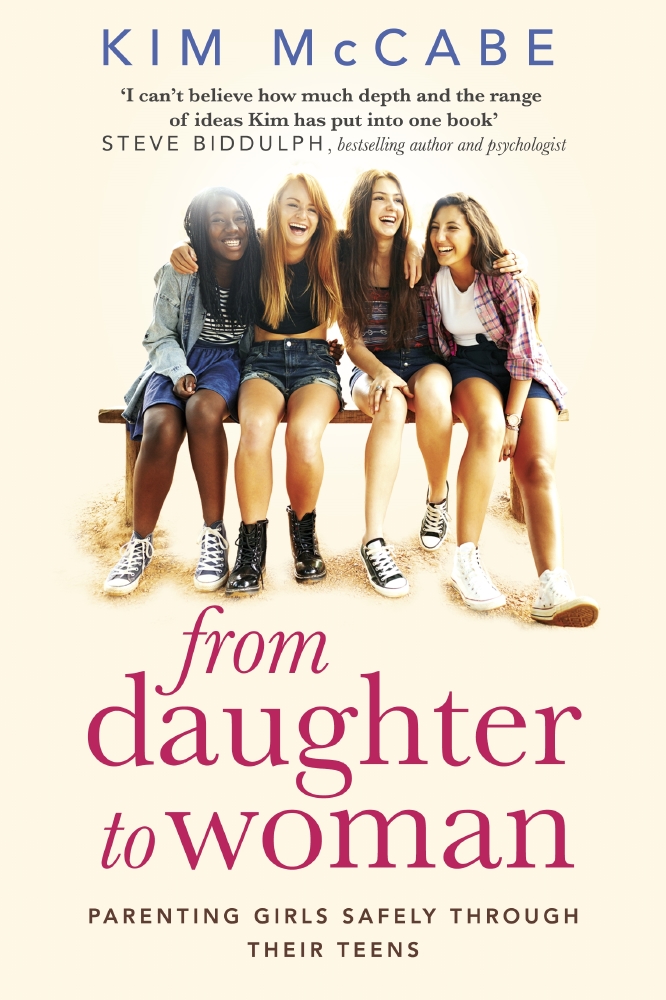By Kim McCabe, author of From Daughter to Woman, parenting girls safely through their teens (published by Robinson on 18th July)

Kim McCabe
Take yourself back to when you were your child’s age. Remember what it was like.
This will help you to understand your child at this life stage. But also remind yourself that your child is not you and she doesn’t necessarily need what you needed back then.
Full attention time. Your children are with you for such a short time. I know that when you’re in the midst of it, it seems like it will go on forever. So, pay attention when your daughter regals you with “she said, and then he said, and then she said”. Put down your oven gloves, phone, papers and give her your attention. If you do she’s more likely to keep telling you about what’s important to her, right into her teens. You won’t be one of the many parents who complain to me that their child tells them nothing.
Do something every day that’s for you and I don’t mean having an extra chocolate biscuit with your tea. Your most powerful influence is as a role model. Far more powerful than what you say is what you do. Your daughter watches you and it gives her an idea of what a woman’s life is like. Does your life seem appealing to her? I work with preteen and teenage girls and many of them see their mothers not doing much for themselves and it makes them nervous about what lies ahead for them. So, you have a duty to take good care of yourself and do what you can to make your life pleasant. Of course, you have all kinds of cares, responsibilities, duties and chores, but in amongst all that, what are you doing that is purely for your pleasure? Healthy pleasure. We know when what we’re doing is really doing us good. Be a good advert for womanhood.
Make physical contact every day. So much is communicated in a touch, a squeeze, an arm around someone. Life with little ones is very physical; we touch them all the time as we help them dress and eat and play. Then they grow up, can do more for themselves, go off to school and we touch less and less. Teens are often very deprived of physical contact. A hug from behind can still give them their space.
Eat family meals. The evidence is too great to ignore that families thrive when they eat together – happier, fewer problems, better results (work, school). It doesn’t have to be every meal or every day but at least three times a week make sure you all sit down to eat together.
Let her know that’s she’s no longer a child in your eyes. Kids want to know that we see that they’re growing up, they crave that acknowledgement. And if we don’t give it to them, they’ll try to prove it in what they say and do and wear.
Love her just exactly as she is. That’s what she needs most from you.


